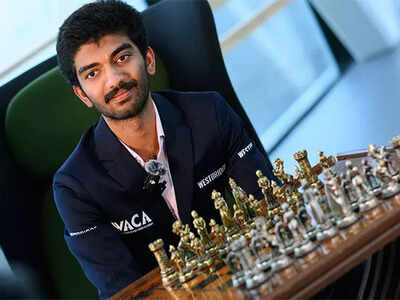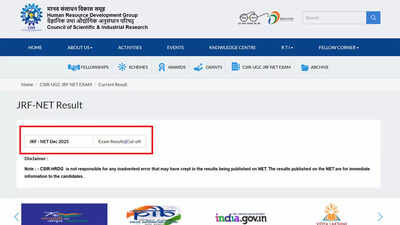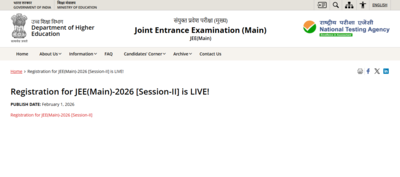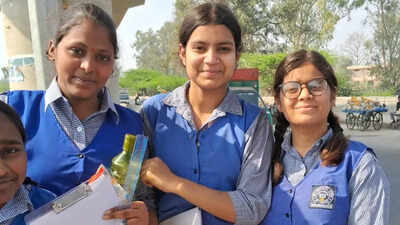Did you know? D Gukesh—the 19-year-old Grandmaster—has only studied till this class

At 19, D Gukesh Dommaraju has achieved what many thought impossible. Earlier this year, he became the youngest ever undisputed World Chess Champion. Yet his academic journey is even more unusual than his chess trajectory. Unlike most teenagers his age preparing for undergraduate admissions, Gukesh has not studied beyond the fourth grade.Born in Chennai in May 2006, Gukesh showed early promise as a chess player. He studied at Velammal Vidyalaya School in Mel Ayanambakkam, Chennai, a school known for supporting sporting talent, especially chess. But it soon became clear to his parents and coaches that traditional schooling would not accommodate the demands of elite chess training and international tournaments.By Class IV, Gukesh and his family took a decision that would define his life. He stopped attending regular classes. Reports vary slightly, with some suggesting he continued up to Class V, but all agree his formal schooling ended in the primary years. From then on, chess was no longer an extracurricular activity; it became his full-time education.For most Indian parents, pulling a child out of school is unthinkable. The risks are obvious. Without formal qualifications, fallback career options narrow considerably. Yet Gukesh’s parents believed his talent warranted this leap of faith. His father, Dr Rajinikanth, an ENT surgeon, eventually quit his practice to accompany his son to tournaments and training camps. His mother, Dr Padma, a microbiologist, became the family’s sole breadwinner as they shifted resources to support Gukesh’s demanding training schedule.By age 11, Gukesh had taken a year off school to focus on chess. His performance during that period convinced his parents to continue this path permanently. Within two years, he achieved the International Master title. By age 12, he became one of the youngest Grandmasters in history. He went on to win youth world championships, dominate the Asian circuit, and represent India at the Olympiad, where he performed on board one with remarkable consistency.In April 2024, at just 17, he became the youngest ever winner of the Candidates Tournament, earning the right to challenge reigning World Champion Ding Liren. In December 2024, at 18, he defeated Ding in a tense match to become the youngest undisputed World Chess Champion, surpassing the record set by Garry Kasparov in 1985.Gukesh’s case raises important questions about what it means to be educated. His schooling in conventional subjects—mathematics, science, literature—stopped at an elementary level. Yet his education in chess required far greater cognitive rigour than standard curricula. Hours of calculation training, opening preparation, psychological resilience, and match strategy became his syllabus. Instead of periodic school exams, his tests were international tournaments against the world’s best players.His training ecosystem included coaches specialising in different phases of the game, sports psychologists to manage competitive pressure, physical trainers to ensure stamina during long matches, and an informal education in global travel, cultures, and languages picked up during tournaments. In a sense, Gukesh replaced the structured learning of a classroom with the unstructured but intense education of professional sports.However, the decision to sideline formal education carries costs. Academic gaps in subjects such as science, history, and languages remain unfilled unless supplemented later. Social interactions with school peers were limited. Most importantly, the absence of a degree narrows options if his chess career stalls or if he chooses to transition to another profession. While his current status as World Champion insulates him from immediate concerns, many professional players eventually turn to coaching, commentary, or chess analytics, where broader academic exposure can be an asset.At its core, Gukesh’s story is not about dropping out of school. It is about escaping the tyranny of homework and mathematics worksheets to enter a world where calculations have actual consequences. While his classmates were memorising the life cycle of a frog, Gukesh was learning how to outwit a Russian Grandmaster who had spent decades perfecting a single opening.It is tempting to see this as a moral tale: follow your passion, drop out, become a champion. But reality is more brutal. For every Gukesh who sacrifices school for chess and becomes world champion, there are thousands who sacrifice school for sport, art, acting, or gaming and are left with neither a championship nor a degree—only unfulfilled dreams and awkward CVs.Yet Gukesh’s journey forces us to ask uncomfortable questions. What is education if not preparation for life? If a teenager has already conquered the world at 18, what exactly could high school biology teach him about survival? Perhaps the better question is what the rest of us are doing with our carefully framed degrees and LinkedIn certificates while Gukesh checkmates opponents who once seemed immortal.Because for now, India’s new chess king remains an outlier who studied only up to Class IV, then traded his notebooks for a board of 64 squares—and rewrote what education can mean when genius, sacrifice, and single-minded madness collide.






